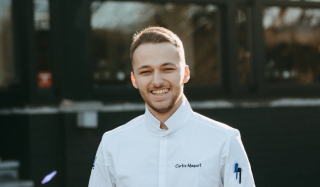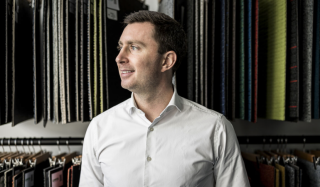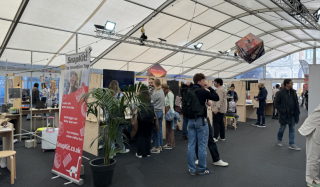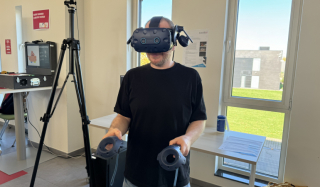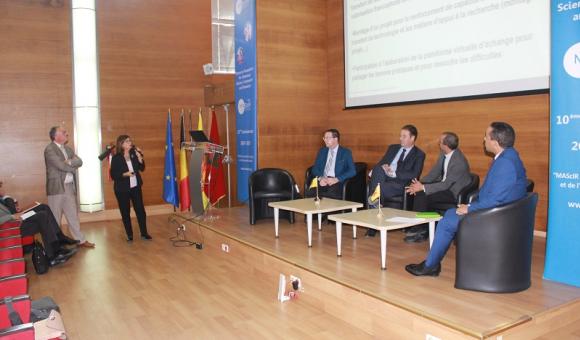
The appointment of Belgian-Moroccan virologist Moncef Slaoui as the head of a team of American experts in the fight against Covid-19 is an opportunity for W-B to highlight one of its Moroccan partners in innovation: MASciR.
The news went global last month: Belgian-Moroccan virologist Moncef Slaoui, educated in immunology at the Université Libre de Bruxelles, has been asked by the White House to run the team of American experts in charge of finding a vaccination for COVID-19. This is an opportunity for Wallonia-Brussels to highlight one of its Moroccan partners in innovation: MASciR, the Moroccan Foundation for Applied Science and Research and its biotech start-up Moldiag, which are developing the first Moroccan screening tests.
The fight against COVID-19 has put researchers in the spotlight from across the globe, who are invested in the race against the clock to discover a vaccination and new treatments, and develop new screening techniques. But all this work would remain separate if universities’ technological transfer offices did not play their role as an important link in the chain that brings scientific discovery in the lab to society, as a connection between universities and companies.
At the initiative of Wallonia-Brussels and the Agence universitaire de la Francophonie (Francophonie University Association), the interfaces between Belgian academic institutions and French-speaking countries have come together since 2018 in a French-speaking development space. This community intends to promote its expertise and skills to serve development and enable universities to contribute to the implementation of the economic strategy for Francophonie launched in 2014 at the Dakar Heads of State Summit.
Very soon, Moroccan developers and especially MASciR and CNRST became actively involved in this French-speaking space. After the first French-speaking Forum for development organised in Liège in March 2018, MASciR held a first round table discussion on development in Maghreb in November 2018 alongside the important academic mission led by Minister Marcourt. Since then, the experts of the LIEU network, which brings together the technological transfer offices of French-speaking Belgian universities, have become involved in initiatives to strengthen the capacities of their colleagues from universities and research centres in Morocco and the rest of the French-speaking area.
The last mission of 4 scientific experts from the Université Catholique de Louvain saw significant interest emerge from Moroccan partners in developing technological partnerships, and the also stated their capacity to finance the Moroccan participation in bi- or multilateral research programmes.
A new partnership signed between Wallonia-Brussels and the OCP foundation, a major player in research and innovation in Morocco strengthens this rapprochement between the innovation ecosystems in Morocco and Wallonia-Brussels because the OCP Foundation decides the destiny of MASciR.
What is MASciR?
Since 2007, the MASciR Foundation has promoted the development of several technological research divisions in the fields of materials and nanomaterials, biotechnology, micro-electronics and life sciences. The foundation’s work is focused on applied research and innovation to meet the Moroccan market’s needs. With scientific platforms at the cutting edge of technology and high-level human capital, its researchers operate in different innovative fields from mines to renewable energy, health and transport. MASciR focuses on the current and future needs of industry, agriculture and economic operators.
For a few weeks, researchers have been accelerating the development of an RT-PCR type COVID-19 screening kit. With this invention made in Morocco, the MASciR Foundation aims to play a major role in innovation in Morocco and across the African continent.
